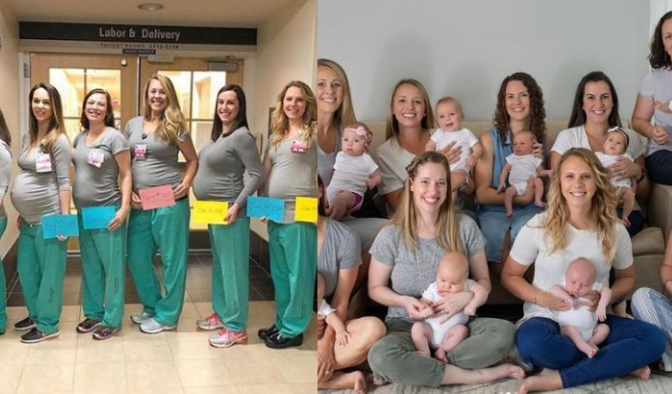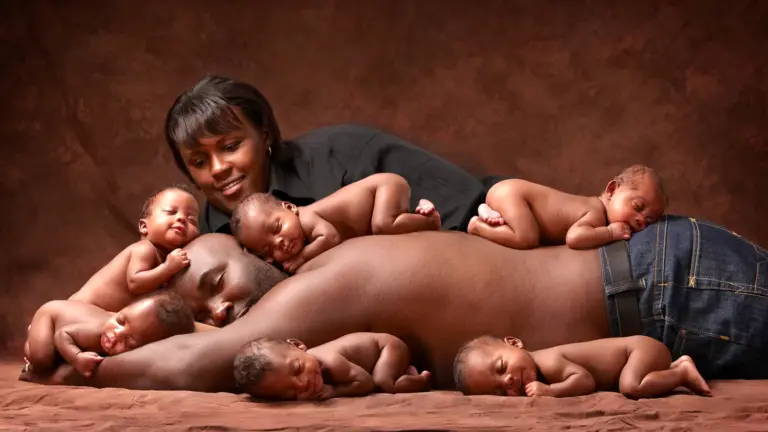Part 1: The Weight of the Stares

The glass tower of Pinnacle Enterprises gleamed under the Willow Creek skyline, its sleek lobby bustling with the hum of ambition and power. On the 15th floor, the Marketing Department was a hive of activity—computers humming, phones ringing, whiteboards scrawled with campaign ideas. But as the clock struck 9 a.m., a hush fell over the open-plan office, eyes turning to the glass conference room where a new hire was about to be introduced. Maya Ellison, a 25-year-old Black woman, stood beside the department head, her navy blazer crisp, her braids neatly pulled back, her résumé a testament to her brilliance—top of her class at Willow Creek University, internships at top firms, and a portfolio that sparkled with creativity. Yet, as she faced her new colleagues, her heart pounded, sensing the weight of their stares, not of welcome, but of judgment.
Jacob Reynolds, the 38-year-old white department head, stepped forward, his tailored suit sharp, his smile tight and perfunctory. “Everyone,” he said, his voice carrying over the room, “this is Maya Ellison, our new junior marketing associate. She’ll be joining the team effective today.” His words were formal, his hand gesturing to Maya, but his eyes flickered with a subtle unease, his introduction lacking warmth. He stepped back, his arms crossing, his silence an invitation for the room to react.
The response was immediate, a ripple of whispers spreading like wildfire. Sarah Mitchell, a senior copywriter in her 30s, leaned toward her desk mate, her blonde ponytail swinging, her voice low but sharp. “A Black girl? Really?” she muttered, her eyes raking over Maya’s blazer and modest heels. “This is Pinnacle, not some startup. What were they thinking?” Her colleague, Ethan Carter, a graphic designer with a smug grin, chuckled, his voice carrying. “She looks like she’s barely out of college. Probably a diversity hire. This is gonna drag us down.”
Across the room, other voices joined, their murmurs a chorus of disdain. “She’s too young for this level,” said Rachel Nguyen, a campaign manager, her arms crossed, her tone clipped. “Pinnacle’s reputation is at stake. A Black girl like her? She’ll make us look amateur.” Another voice, from a corner cubicle, added, “Bet she got in through connections. No way she earned this.” The words stung, each one a dart aimed at Maya’s presence, her skin, her youth, her very existence in their polished world.
Maya stood tall, her hands clasped, her smile steady but her heart racing, the whispers cutting deeper than she’d expected. She’d faced skepticism before, but this was a Fortune 500 giant, a dream she’d fought for. She caught Sarah’s sneer, Ethan’s smirk, Rachel’s frown, and felt the weight of their assumptions. Reynolds cleared his throat, his face neutral, but his silence spoke volumes, mirroring the room’s doubt. “Maya,” he said, his voice clipped, his hand gesturing to a corner desk, “your station’s over there. Get settled. We’ll brief you later.” His tone was cold, his dismissal a signal that she was on her own.
Maya nodded, her smile unwavering, her voice clear. “Thank you, Mr. Reynolds,” she said, her words polite but firm, her heels clicking on the polished floor. The whispers followed, Sarah’s voice rising, “That desk’s next to mine? Great, now I’m babysitting.” Ethan laughed, “Hope she can keep up. This isn’t a charity.”
Maya reached her small cubicle. She set down her bag, her hands steady, but her chest tightened. The team’s words echoed—Black girl, too young, diversity hire, amateur—each one a reminder of the battles ahead. She took a deep breath, her mother’s words ringing in her mind: You’re stronger than their hate, Maya. Prove them wrong, one step at a time.
As she powered on her computer, Maya knew Pinnacle was a battlefield, its glass walls hiding prejudice as sharp as its ambition. She straightened, her fingers poised on the keyboard, her heart whispering a vow: she’d rise, not because of where she started, but because of who she was.
Part 2: The Humiliation of the First Day
The 15th floor of Pinnacle Enterprises buzzed with the rhythm of a high-stakes marketing department. Maya Ellison sat at her corner cubicle, her navy blazer draped over her chair, her enthusiasm dimming under the weight of a painful reality: she was invisible, her presence tolerated but not valued.
She powered on her computer, scanning the office. Sarah, Ethan, and Rachel were busy, their work visible and important. Jacob Reynolds was in his glass-walled office, his silence a wall she couldn’t breach. “Okay,” Maya whispered, her resolve hardening. “If they won’t give me work, I’ll find it.”
She approached Sarah’s desk. “Sarah, hi,” she said. “I’m ready to jump in. Is there anything I can help with on your projects?” Sarah’s eyes narrowed. “Help?” she said, her tone sharp. “Oh, sweetie, we’re swamped with real work. But…” She grabbed a stack of papers. “These need printing. Third floor, copy room. Don’t mess it up.”
Maya’s smile faltered, but her voice was steady. “Sure.” She moved to Ethan’s desk. “Ethan, need any support with designs?” Ethan leaned back, his smirk widening. “Support?” he chuckled. “Nah, I’m good. But the coffee machine’s low. Why don’t you brew a fresh pot? Make yourself useful.” His laugh followed her, and Rachel snorted, “Better get used to that, newbie.”
Her cheeks burned, but she nodded, heading to the break room. She tried again at Rachel’s desk, offering to analyze campaign data, but Rachel waved her off. “We’re fine,” she said. “Refill this at the cooler. And grab some tea bags while you’re at it.”
The day dragged on, a blur of menial tasks—printing, fetching water, wiping down a whiteboard—each one a reminder of her colleagues’ contempt. Reynolds passed by once, his refusal to assign her real work a silent endorsement of the team’s disdain. By 5 p.m., Maya sat alone, her first day a hollow ache of frustration and humiliation.
“This is just the start,” she told herself, her resolve a flame that refused to dim. “I’ll earn my place, no matter what they think.”
That evening, Maya sat at the dinner table in her family’s brownstone. Her father, Benjamin Ellison, a 55-year-old Black man, sat opposite her. His role as chairman of Ellison Industries—Pinnacle’s parent company—was hidden behind his gentle smile. “How was your first day, Maya?” he asked.
“It was… tough, Dad,” she admitted. “They whispered about my skin, called me a diversity hire. The department head barely spoke to me, and they had me running errands—printing, making coffee, like I’m an intern. I wanted to start at the bottom, prove myself, show I belong without anyone knowing I’m your daughter. But it’s harder than I thought.”
Benjamin’s jaw tightened, his voice steady but laced with anger. “They judged you before you could even start. Pinnacle’s my company, but I agreed to let you climb on your own terms. You’re stronger than they know, Maya, and they’ll see it. Keep going. Your work will speak louder than their prejudice.”
Maya nodded, her voice resolute. “I won’t quit. I’ll show them who I am, one campaign at a time.”
Part 3: The Pitch: A Battle for Opportunity
The next morning, the office hummed with anticipation for a pivotal meeting. Maya Ellison sat at her cubicle, her notepad filled with sketches for a campaign idea she’d spent the night refining, fueled by her mother’s mantra: Prove them wrong.
At 10 a.m., Jacob Reynolds announced the project: a marketing campaign for Pinnacle’s new eco-friendly product line. “This is high-profile, with the board watching. Each of you will pitch an idea today. The best one takes lead on the project, a career-defining chance.”
Sarah, Ethan, and Rachel eagerly volunteered. Maya raised her hand. “I’d like to pitch, too,” she said, her resolve unshaken despite the team’s snickering.
Sarah snorted. “Her? Seriously? What’s she gonna pitch, coffee runs?” Rachel whispered, “This is a real project, not a school assignment.”
Reynolds assigned a week for pitch development. Maya immediately returned to her cubicle, drafting visuals, scripting taglines, and mapping a multi-platform strategy. Her idea—a bold, community-driven campaign tying sustainability to cultural heritage—burned in her mind.
The mockery sharpened as her colleagues noticed her effort. Sarah passed by, her voice dripping with sarcasm. “Look at her, acting like she’s got a shot.” Rachel patronizingly warned, “Don’t embarrass yourself. Stick to what you’re good at—fetching tea.” Maya ignored them, her pen moving faster, her voice silent but her heart roaring, I’ll show you.
By the week’s end, Maya’s work was meticulous, her pitch a fusion of eco-consciousness and cultural storytelling. She didn’t see Sarah’s smirk as she lingered near Maya’s desk after hours, her coffee cup suspiciously close to Maya’s laptop.
As Maya powered down her computer, her heart swelled with hope. “This is my chance,” she whispered. The meeting tomorrow would test her, but she was ready, her valor unseen but unyielding.
Part 4: Sabotage and Salvation
The conference room was a crucible of ambition. Reynolds began the pitches, his expression stern. Sarah, Ethan, and Rachel presented ideas that were either predictable, too trendy, or uninspired, earning only subtle critiques from the three senior directors seated at the far end of the table.
Maya rose, her hands steady as she connected her laptop. “My turn,” she said, her voice clear. She clicked to start, but the screen flickered, then went black, her laptop frozen, her week of work trapped inside.
The room erupted. Sarah’s laugh was sharp. “Wow, not even prepared,” she mocked. Ethan chuckled, “Maybe stick to coffee runs next time.” Rachel cut in, “Amateur move. You’re wasting our time.” Reynolds’s frown deepened. “Maya, we can’t wait. If you’re not ready, sit down.”
Maya realized the awful truth: her laptop had been sabotaged. She had no proof, only the weight of their scorn. “I… I can fix this,” she stammered, her voice faltering.
The conference room door opened, and a hush fell as Benjamin Ellison stepped in. The Chairman of Ellison Industries. The room froze. Benjamin nodded to his assistant, who approached Maya. “Use this,” she said, handing over a sleek laptop.
Maya’s breath steadied. She connected the new laptop, loading her backup files from a USB drive—her precaution after years of overcoming obstacles. The screen glowed, her slides vibrant.
“My campaign, Roots of Renewal, connects Pinnacle’s eco-products to communities,” she said, her tone passionate. “We’ll host workshops in underserved areas, share stories of cultural resilience, and launch a hashtag, #GrowTogether, uniting generations for sustainability. It’s authentic, inclusive, and impactful.”
Her pitch was a masterpiece. The directors leaned forward, their pens moving, their applause erupting as she finished. “Brilliant,” one said. “Fresh, bold, exactly what we need.” Reynolds’s voice was reluctant but impressed. “Well done, Maya. That’s… exceptional.”
The directors conferred, then nodded to Reynolds. “Maya, your pitch is the winner,” he announced. “You’ll lead the campaign. Congratulations.” Maya smiled, her heart soaring, but her eyes caught Sarah’s, a flicker of suspicion sparking—the truth was close.
Part 5: The Unveiling of Truth and Power
Benjamin lingered, his silence a promise of reckoning. He addressed the room. “Ms. Ellison,” he said, his voice warm, “your pitch was extraordinary. You’ve set a new standard today.”
Then his gaze hardened. “But there’s another matter,” he said, his eyes sweeping the team, settling on Sarah, who flinched. “I’ve heard troubling reports about this department—whispers of contempt, prejudice, and sabotage, rooted in the color of a colleague’s skin.”
The room stilled. Benjamin continued: “Ms. Ellison faced mockery—called a diversity hire, assigned menial tasks—all because she’s Black. And today, her pitch was nearly derailed by a deliberate act.”
Sarah stammered a denial. Benjamin raised a hand. “You’re wondering why Ms. Ellison’s laptop failed. It was sabotage.” His assistant connected a tablet to the projector. The screen showed a security camera video: Sarah, alone in the office last night, tilting her coffee cup, water pouring onto Maya’s laptop, her smirk unmistakable.
The room gasped. Sarah’s face drained of color.
Benjamin’s voice rose, a thunderclap. “This act of sabotage is a symptom of a deeper rot—prejudice that festers in silence. And there’s something else you should know.” He paused, his gaze softening as it landed on Maya.
“Maya Ellison is my daughter.”
The room erupted in shock. Reynolds’s pen fell. The directors stared.
Benjamin’s voice was unyielding. “She chose to start at the bottom, to earn her place without my name. But your actions—your whispers, your errands, your sabotage—forced me to see the truth about this department’s moral decay. Sarah Mitchell, you are immediately terminated for professional misconduct and malicious sabotage.”
He turned to Reynolds, his eyes sharp. “Jacob, your leadership failed to protect your employee and allowed prejudice to thrive. You are placed on immediate administrative leave pending a full ethical review.”
He addressed the remaining team. “Pinnacle is committed to integrity and merit. Today, that commitment starts with a clean slate. Ms. Ellison is now the Associate Marketing Director. I expect full cooperation and respect.”
He concluded, his eyes fixed on the directors. “Maya will not just lead this campaign; she will lead the change we need.” Maya stood tall, her heart soaring, her hands steady, her victory complete. The glass tower of Pinnacle Enterprises was about to be shaken to its foundations by her unseen valor.





